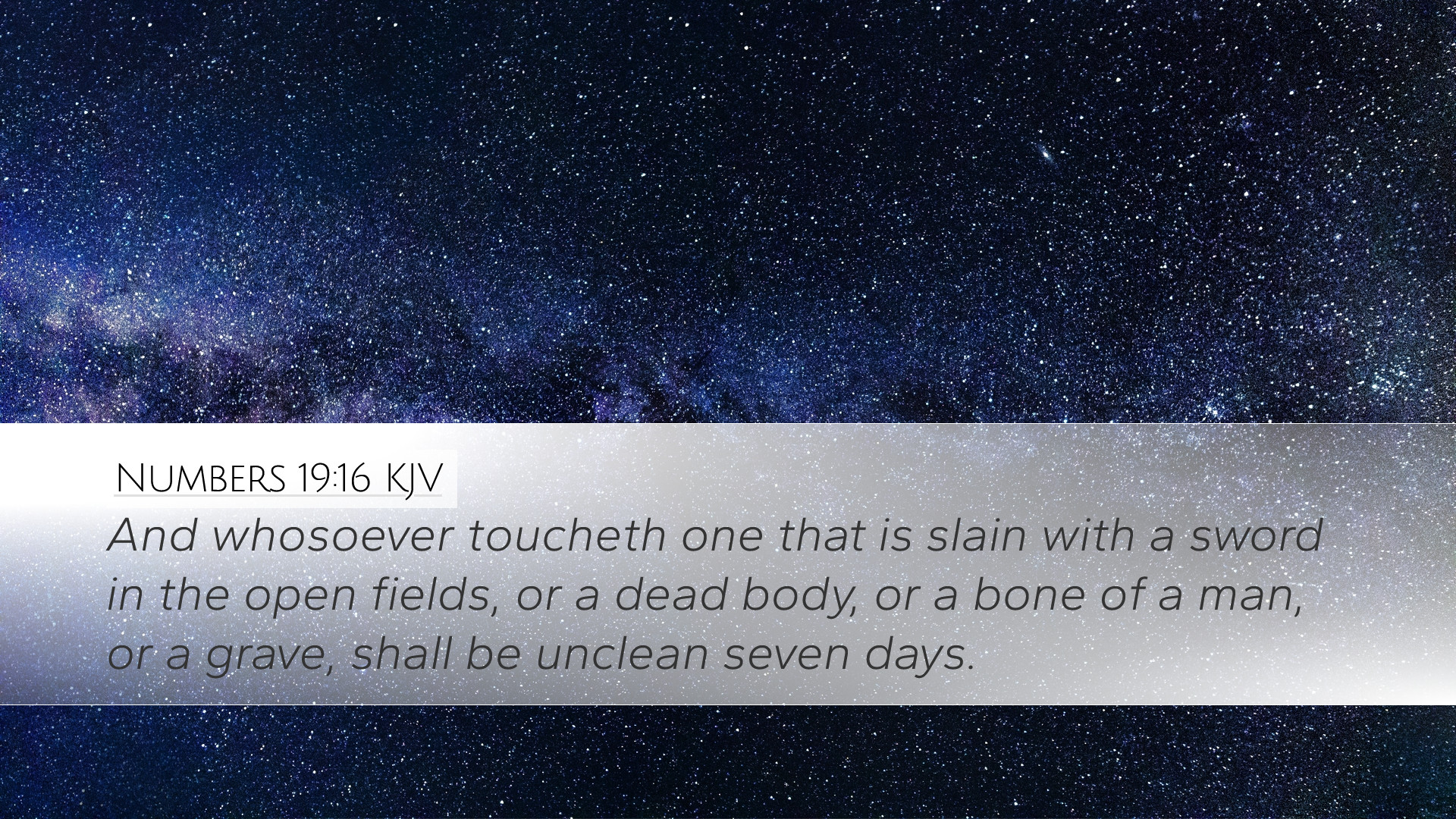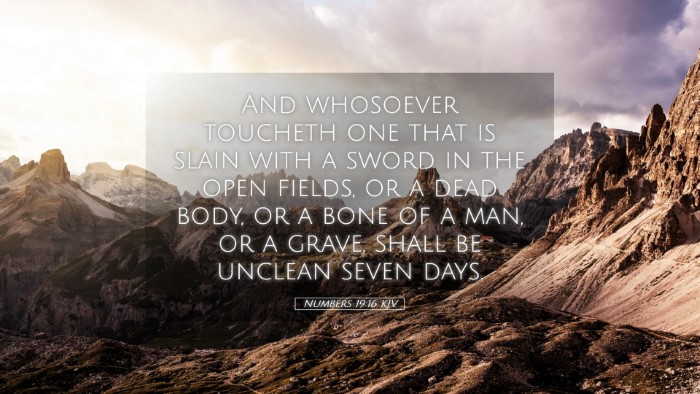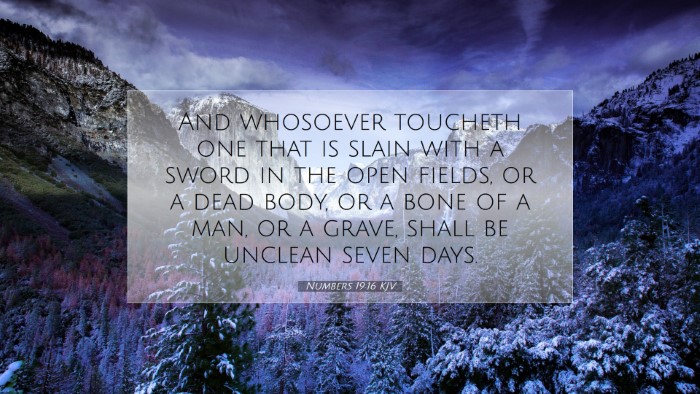Commentary on Numbers 19:16
Verse Text: "And whosoever toucheth one that is slain with a sword in the open fields, or a dead body, or a bone of a man, or a grave, shall be unclean seven days."
Introduction
Numbers 19:16 presents the laws concerning ritual cleanliness, emphasizing the seriousness with which life and death are regarded in the Mosaic law. This verse specifically deals with the consequences of coming into contact with death, illustrating the broader theological themes of death, uncleanness, and the need for purification.
Contextual Background
The Book of Numbers, part of the Pentateuch, serves as a record of Israel's journey through the wilderness and emphasizes their covenant relationship with God. Within this context, the laws presented, including those in chapter 19, are designed to maintain holiness among the people. Past scholars such as Matthew Henry and Albert Barnes expound upon the rituals of purification established in the law, linking them to the spiritual realities of sin and redemption.
Theological Insights
1. The Reality of Death:
The presence of death in the world necessitates a response from the covenant community. The laws regarding ritual cleanliness indicate that death is not only a physical reality but also a spiritual concern. Adam Clarke points out that touching a corpse signifies a profound spiritual contamination, which the community must address through prescribed rituals.
2. The Nature of Uncleanness:
The concept of uncleanness in this context is broader than mere physical dirtiness; it embodies the notion of being socially and spiritually excluded from participation in worship and community. According to Matthew Henry, this uncleanness serves as a reminder of the consequences of sin and the need for separation from the effects of death.
3. The Need for Purification:
To regain purity, the individuals who come into contact with death are required to undergo specific purification rituals. This reflects Albert Barnes' view that these laws are not arbitrary but serve a profound purpose in teaching Israel about holiness and God's expectations for community life.
Practical Applications
1. Understanding Spiritual Consequences:
This passage urges believers to understand that actions in life have spiritual consequences. The community is called to be mindful of its proximity to death, which can symbolize sin and its repercussions.
2. Emphasis on Community Holiness:
For church leaders and members alike, the implications of this verse remind communities of faith about the importance of maintaining holiness in their gatherings. The standards set forth in the law provide critical lessons for contemporary believers on how to regard holiness.
3. Foreshadowing Christ's Work:
The rituals of purification serve as a foreshadowing of Christ’s atoning work. Adam Clarke notes that the New Testament reveals how Christ ultimately conquers death, allowing believers to approach God freely without fear of spiritual uncleanness.
Conclusion
Numbers 19:16, with its detailed attention to matters of life, death, and purification, reflects a broader covenantal framework that can enrich the understanding of believers today. The insights drawn from the public domain commentaries reveal how this verse speaks not only to the historical context of ancient Israel but also to contemporary spiritual life and practice. As pastors, students, and scholars engage with this text, they are encouraged to reflect on the implications of ritual uncleanness, the provisions for purification, and the overarching narrative of redemption that culminates in Christ.


